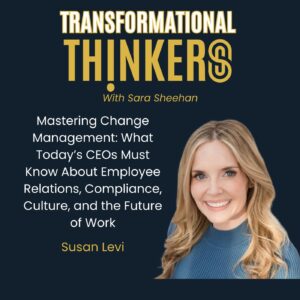Sara Sheehan discusses the power of effective conversations and the positive impact careful conversations can have. She presents ideas such as applying appreciative inquiry and positive psychology to our daily interactions. The goal is to create better relationships through useful conversation.
‘Conversational Intelligence’ is a book by Judith E Glaser that introduces the idea of just that: conversational intelligence. Sara unpacks Judith Glaser’s ideas and lays out exactly how conversational intelligence works and why it’s of such benefit to organizational culture. There are roadmaps that can be created for conversations to ensure their success.
In this episode, Sara Sheehan breaks down exactly why intelligent conversations matter, how effective conversations build higher levels of trust within organizations, and why positive connections with others ultimately leads to business success. There is a strategy to conversation that will de-escalate conflict and heighten engagement and connection within organizations.
Resources discussed in this episode:
- “The Power and Impact of Effective Conversations in the Workplace” by Sara Sheehan, Financial Digest
- “Conversations Worth Having” by Jackie Stavros and Cheri Torres
- “Conversational Intelligence” by Judith E Glaser
—
Contact Sara Sheehan | Sara Sheehan Consulting:
Hosted by Simplecast, an AdsWizz company. See pcm.adswizz.com for information about our collection and use of personal data for advertising.


